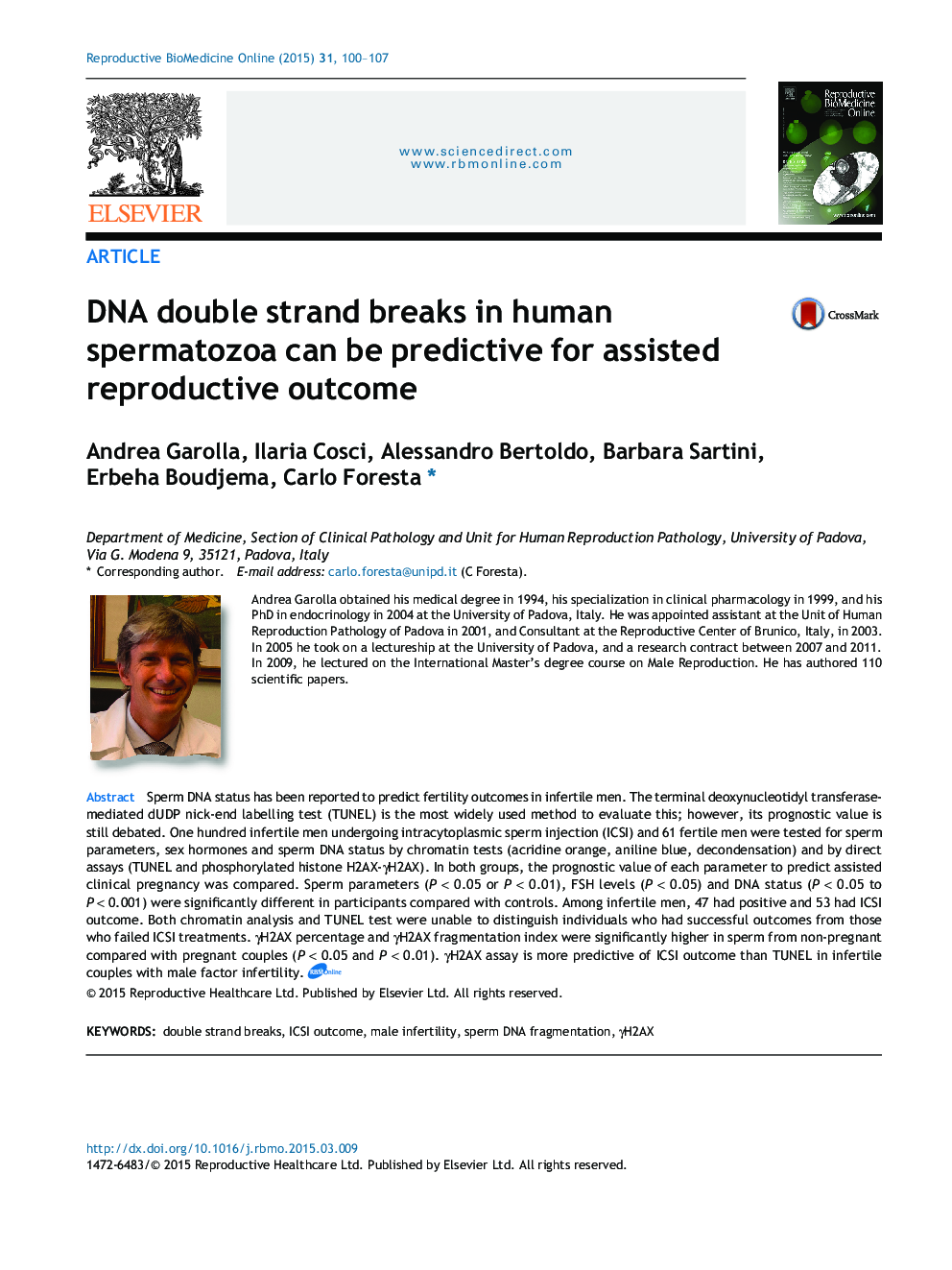| Article ID | Journal | Published Year | Pages | File Type |
|---|---|---|---|---|
| 6188822 | Reproductive BioMedicine Online | 2015 | 8 Pages |
Sperm DNA status has been reported to predict fertility outcomes in infertile men. The terminal deoxynucleotidyl transferase-mediated dUDP nick-end labelling test (TUNEL) is the most widely used method to evaluate this; however, its prognostic value is still debated. One hundred infertile men undergoing intracytoplasmic sperm injection (ICSI) and 61 fertile men were tested for sperm parameters, sex hormones and sperm DNA status by chromatin tests (acridine orange, aniline blue, decondensation) and by direct assays (TUNEL and phosphorylated histone H2AX-γH2AX). In both groups, the prognostic value of each parameter to predict assisted clinical pregnancy was compared. Sperm parameters (P < 0.05 or P < 0.01), FSH levels (P < 0.05) and DNA status (P < 0.05 to P < 0.001) were significantly different in participants compared with controls. Among infertile men, 47 had positive and 53 had ICSI outcome. Both chromatin analysis and TUNEL test were unable to distinguish individuals who had successful outcomes from those who failed ICSI treatments. γH2AX percentage and γH2AX fragmentation index were significantly higher in sperm from non-pregnant compared with pregnant couples (P < 0.05 and P < 0.01). γH2AX assay is more predictive of ICSI outcome than TUNEL in infertile couples with male factor infertility.
